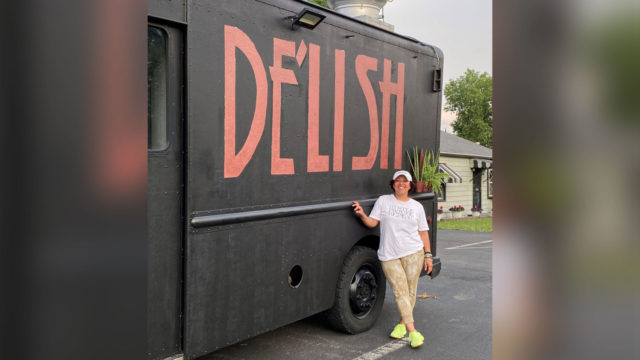(CNN) — As business dried up during Covid-19 lockdowns last year, many restaurants fell behind on rent and had to lay off employees. That was especially true for Black-owned restaurants, which struggled to gain access to emergency capital early on.
But restaurateurs who can no longer afford a traditional brick-and-mortar operation have found a lifeline in the form of food trucks, food halls and ghost kitchens.
Ghost kitchens are typically delivery or take-out-only operations that reduce overhead costs for restaurants in Charleston SC owners. They have become immensely popular during the pandemic. Food halls offer a similar flexibility, renting out equipment and space to independent food service operators in a food-court-like setting.
Black restaurants shift gears
Business leaders say Black restaurant owners have been moving into ghost kitchens at a disproportionately higher rate since the pandemic began. That’s partly because Black-owned brick-and-mortar restaurants were among the hardest-hit businesses in the pandemic.
“Not only is it a viable thing for Black business owners, it’s a viable thing for hospitality in general,” said Adriane Mack, CEO of Miss Mack Enterprises, a hospitality business development firm based in New York’s Harlem neighborhood. Mack and her business partners are finalizing plans to open a ghost kitchen in this historically Black area later this year.
Some business leaders aren’t fond of the food hall and ghost kitchen model. Black Chambers of Commerce president and CEO Ron Busby Sr. likened it to sharecropping, a common post-Civil War agricultural practice in which Black farmers would rent and farm land typically owned by wealthier White men.
“We didn’t own the property and it made it difficult for us to have sustainability, build generational wealth,” Busby said. “I always say we don’t need more sharecroppers.”
But Mack said ghost kitchens make it easier for Black restaurateurs with limited access to capital to get their businesses started, or restarted for those who were forced to close during the pandemic.
“I think a ghost kitchen actually allows them to get back into their own space,” she said. “It gives them an opportunity to keep their brand alive. It doesn’t have to be a zero-sum game.”
‘A spring board to the next level’
Jasmine Brown, a food service owner in Dayton, Ohio, converted her former brick-and-mortar restaurant, De’Lish Cafe, into a food truck business in August. At the start of the pandemic, she said, she considered moving her business back to a more permanent location, but Covid-19 lockdowns made her rethink that plan.
“I was like, ‘I don’t want to take that risk,’ because there were too many unknowns,” Brown said.
So rather than go the traditional restaurant route, Brown signed a lease in a new Dayton-area food hall called West Social Tap & Table, which is scheduled to open in October.
Food halls can help up-and-coming brands establish themselves before going all-in on expensive restaurant space and kitchen equipment, says Cheryl Dillin, corporate brand officer of DIllin LLC, the real estate developer behind West Tap & Social.
“Not every business owner’s business plan includes being a property manager and a property owner,” Dillin said. “This food hall gives local entrepreneurs an opportunity to prove themselves, gain a local following. It’s kind of like a spring board to the next level.”
Brown was one of 17 Black restaurant owners to recently receive a $10,000 grant from the National Urban League’s Black Restaurant Accelerator, a program funded by the PepsiCo Foundation that is distributing a total of $10 million over five years to Black restaurateurs in cities across the country.
The civil rights group’s partnership with PepsiCo is one of several private industry initiatives aimed at helping Black entrepreneurs stay in business after a tumultuous 2020.
Black businesses were disproportionately hurt by Covid
Forty-one percent of Black-owned businesses shuttered during the spring last year, when state and local governments across the country ordered nonessential businesses to close, according to a pair of studies from the New York Fed and the University of California, Santa Cruz. Only 17% of White-owned businesses shut down during the same period, the Santa Cruz study found.
National Urban League President Marc Morial says there’s no way to know for sure yet how many Black-owned restaurants have been permanently lost, but corporate-funded programs like his are helping to launch an emerging class of Black food service providers.
“There’s going to be this new generation who are going to be entrepreneurs coming out of the pandemic recession because they’ve lost a job,” Morial told CNN Business. “The call to action now is not just more loans. The call to action now is equity, grants, money to help people get back on their feet.”
Spending at restaurants across the country has been on the rise since March as more Americans resume their pre-pandemic ritual of dining out regularly. But many independent restaurants are still struggling to reopen and business leaders say Black restaurant owners are having an especially hard time bouncing back.
An estimated 90,000 restaurants have closed permanently or long-term since the pandemic began, according to the National Restaurant Association.
“Many of the spaces and places where we were historically are no longer there,” Busby said.
The-CNN-Wire
™ & © 2021 Cable News Network, Inc., a WarnerMedia Company. All rights reserved.




























